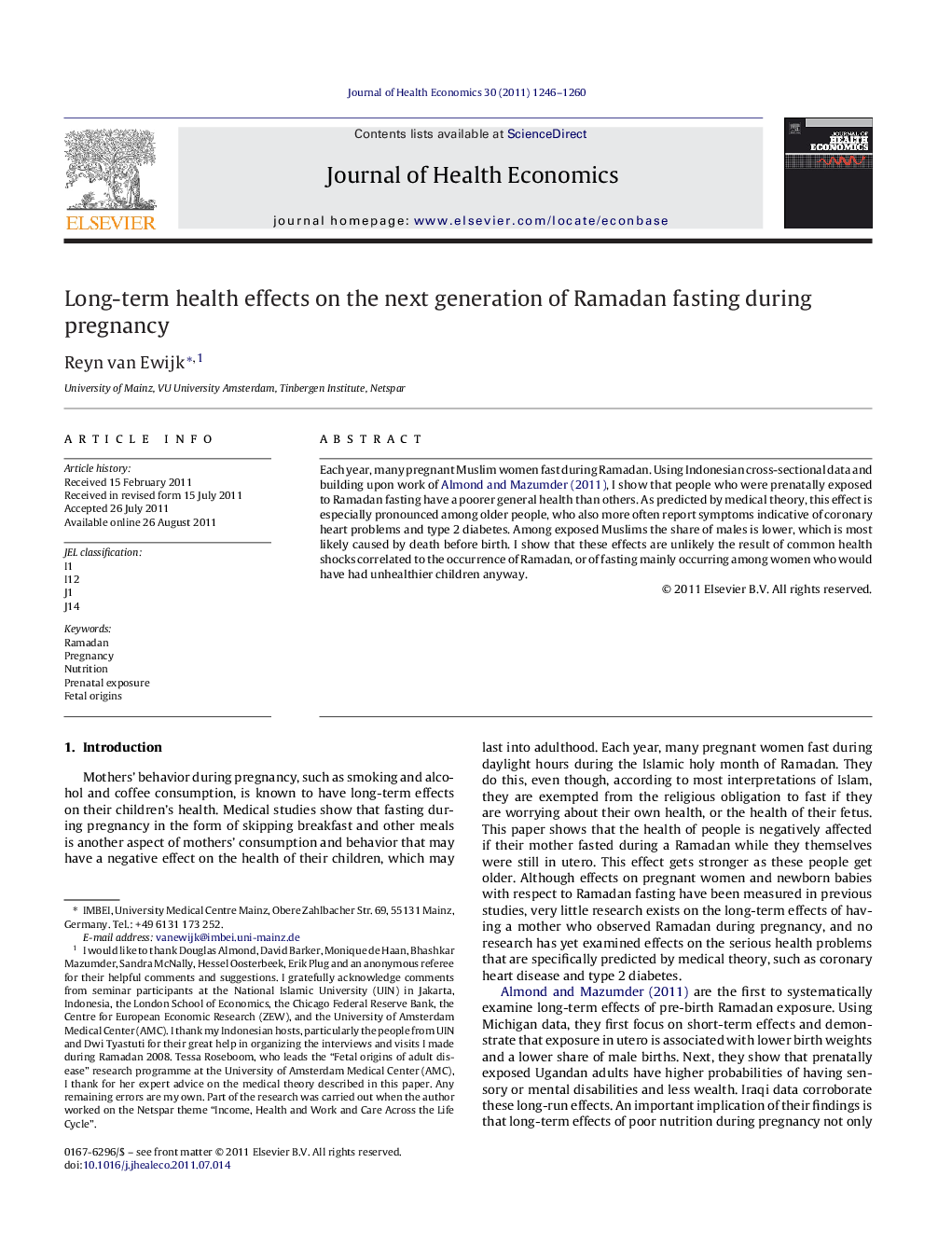| Article ID | Journal | Published Year | Pages | File Type |
|---|---|---|---|---|
| 961929 | Journal of Health Economics | 2011 | 15 Pages |
Abstract
Each year, many pregnant Muslim women fast during Ramadan. Using Indonesian cross-sectional data and building upon work of Almond and Mazumder (2011), I show that people who were prenatally exposed to Ramadan fasting have a poorer general health than others. As predicted by medical theory, this effect is especially pronounced among older people, who also more often report symptoms indicative of coronary heart problems and type 2 diabetes. Among exposed Muslims the share of males is lower, which is most likely caused by death before birth. I show that these effects are unlikely the result of common health shocks correlated to the occurrence of Ramadan, or of fasting mainly occurring among women who would have had unhealthier children anyway.
Related Topics
Health Sciences
Medicine and Dentistry
Public Health and Health Policy
Authors
Reyn van Ewijk,
